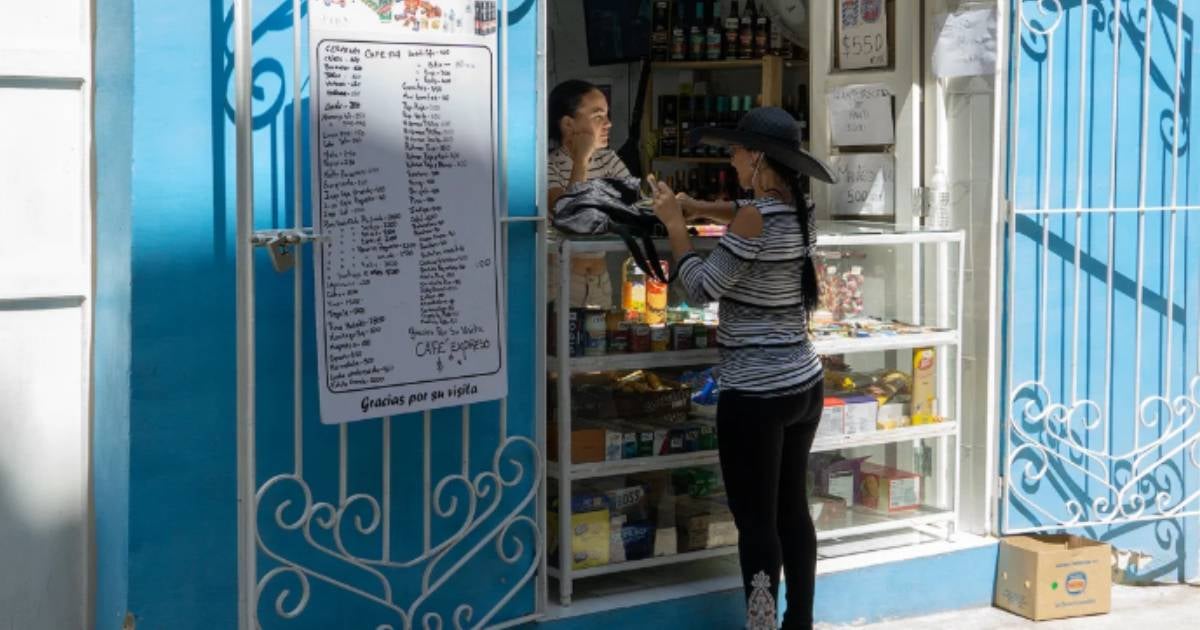
Related videos:
The United States government expressed its concern over the new regulations implemented by the Cuban government since December 5, which, according to experts and analysts, could exacerbate the economic and social crisis facing the island.
The measures primarily affect Cuban micro, small, and medium-sized enterprises (Mipymes) by canceling wholesale trade licenses and forcing these companies to partner with state entities in order to continue operating.
Brian A. Nichols, Under Secretary of State for Western Hemisphere Affairs, stated that the new regulations "will further exacerbate food insecurity and limit opportunities for independent entrepreneurs in Cuba."
In his statement via X, Nichols emphasized that "Cubans deserve better economic conditions and an environment that supports private initiative, rather than restrictions that exacerbate the crisis."
The measure is part of a series of reforms adopted by the Cuban regime to "organize" wholesale trade and enhance market efficiency.
However, economists and critics point out that instead of improving the situation, Resolution 56 from Cuba’s Ministry of Domestic Trade further harms the private business sector, which has been a fundamental pillar for retail on the island.
Pedro Monreal, a Cuban economist, described the resolution as "a blow to market relations," as it eliminates the autonomy of small and medium enterprises by forcing them to depend on the state apparatus.
According to Monreal, this could lead to a scarcity of products and heighten social tensions, as the Cuban government continues to tighten its control over the economy while facing an increasing shortage of consumer goods.
The U.S. government has reiterated that these new restrictions in Cuba, along with other policies that limit the space for private entrepreneurs, not only hinder the island's economic recovery but also reinforce a centralized and repressive model that has proven ineffective in meeting the population's needs.
Frequently Asked Questions about Restrictions on Mipymes in Cuba
What does Resolution 56 mean for small and medium-sized enterprises (SMEs) in Cuba?
Resolution 56 automatically revokes the wholesale trade licenses for small and medium-sized enterprises (SMEs) that were engaged in this activity as a secondary line of business and requires those that operate it as their main activity to partner with state entities. According to economist Pedro Monreal, this measure aims to re-monopolize the wholesale supply and reduce private competition.
How does this measure affect the Cuban economy?
The measure stifles private commerce by turning small and medium-sized enterprises (mipymes) into captive clients of wholesale state-owned companies, which are inefficient and lack foreign currency. This could lead to increased inflation and worsen the chronic shortages on the island, affecting social stability at a time of high demand for consumer goods.
What is the Cuban government trying to achieve with these restrictions?
The Cuban government aims to control and centralize wholesale trade in the hands of state entities, under the premise of improving infrastructure and transportation. However, it is criticized for increasing bureaucracy and inefficiency, which harms small and medium-sized enterprises and restricts the flexibility and liquidity of the private sector.
How should small and medium-sized enterprises prepare to adapt to the new regulations?
Micro, small, and medium-sized enterprises (mipymes) must update their business license and corporate purpose within 90 days if they wish to continue in wholesale trade alongside state entities. Those that do not wish to partner will have 120 days to liquidate their stocks by selling them retail, as long as they have the necessary license for that.
Filed under: